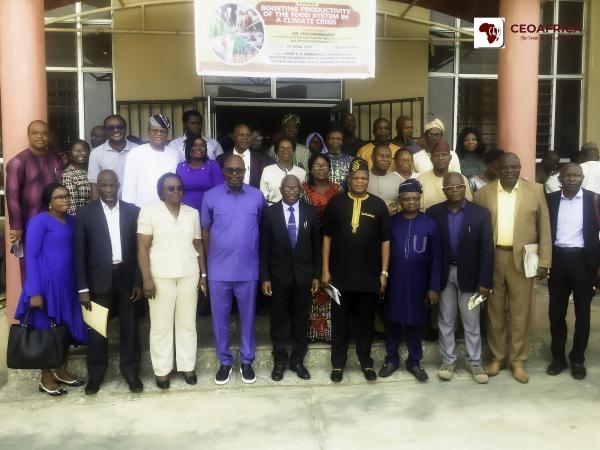
Food and nutrition security stakeholders have agreed to harmonise actions towards ending hunger and malnutrition in the (Southern African Development Community) SADC region until 2025 by setting up a knowledge sharing platform.
The three-day workshop ended last week in Johannesburg, South Africa, and was organised by the NEPAD Agency, Southern African Development Community (SADC) and UN Food and Agriculture Organisation (FAO).
Head of the Food and Nutrition Security Programme at the New Partnership for Africa's Development (NEPAD) Agency, said Ms Isatou Jallow said: "African leaders have put food and nutrition security high on the continent's development agenda, with their commitment to end hunger and reduce stunting to 10 per cent and underweight to five per cent by 2025.
Establishing a Knowledge-Sharing and Monitoring Platform is therefore critical in promoting the generation and use of quality data in planning, monitoring and decision making by different stakeholders and sectors working to ensure food and nutrition security in Africa."
Participation was drawn from high-level representatives from 12 SADC countries, the African Union Commission, African Ministries of Health and Agriculture, UN Agencies, USAID, International Food Policy Research Institute (IFPRI), Scaling Up Nutrition Movement (SUN), and Consortium of International Agricultural Research Centres (CGIAR), among others.
Citing the 2015 Global Nutrition Report, Chief Technical Advisor on CAADP Nutrition, FAO-Africa, Mawuli Sablah, emphasised that "we all need to work together to reduce the current high prevalence of overweight - 63 per cent in women and 41 per cent in men - in Southern Africa. Stunting is still high at 29 per cent while 14 per cent of children under five are overweight. Forty-four per cent of children between six to 59 months are deficient in vitamin A and 28 per cent of women of reproductive age are estimated to be anaemic in the Southern Africa sub-Region.”
Mr Sablah emphasised that knowledge sharing is critical in Africa to reach the continental objective of zero hunger and optimal nutrition and
assured participants of FAO's continued support to reinforce the Knowledge Management platform, and its sustainability in the future, and to then expand this community of practice to all Africa.
Ambassador Mary Mubi, Principal Director of Knowledge Management, Office of the President, Zimbabwe, noted that the knowledge platform will provide a space for evidence-based planning and monitoring, so as to influence action at all levels and especially at the community level.
The objective of the NEPAD and SADC-led platform is to capture, synthesise and disseminate relevant information on food and nutrition security, as well as the exchange of knowledge and expertise on different policies, programmes, coordination mechanisms and investments in the area of food and nutrition security within SADC.
The platform is also envisaged as an initiative to foster regional coordination, as well as accountability in the tracking and monitoring of African commitments, including the Malabo Declaration on Nutrition Security for Inclusive Economic Growth and Sustainable Development.





















